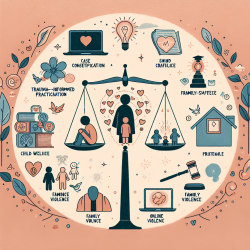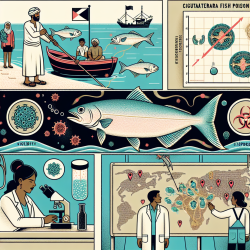As a practitioner dedicated to improving outcomes for children and families, it is crucial to understand and implement case conceptualization in child welfare. This process, which has been underutilized, offers a structured approach to assessing and addressing the complex needs of children and families. By integrating trauma- and violence-informed care principles, comprehensive assessments, and case conceptualization, practitioners can develop more effective treatment plans.
Understanding Case Conceptualization
Case conceptualization, also known as case formulation, is a clinical strategy for obtaining and organizing information about a client, explaining the client's situation, guiding treatment, and preparing for successful termination. It involves:
- Diagnostic formulation: Identifying symptoms and behaviors.
- Clinical formulation: Understanding the underlying causes of these symptoms.
- Cultural formulation: Considering the role of culture in the client's life.
- Treatment formulation: Mapping out a treatment plan.
The Importance of Trauma- and Violence-Informed Care
Trauma- and violence-informed care extends traditional trauma-informed care by emphasizing the impact of both individual and systemic violence. This approach is essential for creating a safe and supportive environment for children and families. Key principles include:
- Recognizing the prevalence of family violence.
- Prioritizing physical, emotional, and cultural safety.
- Tailoring interventions to the unique needs of each child and family.
Comprehensive Assessments
A comprehensive assessment is vital for understanding the full context of a child's life. This should include:
- Home situation and family dynamics.
- Developmental history and education.
- Emotional and behavioral functioning.
- Experiences of family violence and other adversities.
Such assessments enable practitioners to develop accurate case conceptualizations that inform effective treatment planning.
Case Example: Rose
Consider the case of Rose, a 10-year-old girl referred for mental health services due to behavioral concerns. A comprehensive assessment revealed a history of family violence, emotional abuse, and neglect. Initial individual counseling sessions focused on cognitive restructuring but were ineffective. A revised case conceptualization highlighted the need to address family dynamics and safety concerns before focusing on Rose's individual symptoms.
Conclusion
Case conceptualization, when integrated with trauma- and violence-informed care and comprehensive assessments, can significantly improve outcomes for children and families involved in child welfare. Practitioners are encouraged to adopt these practices to enhance their clinical effectiveness.
To read the original research paper, please follow this link: Case conceptualization in child welfare: an underused resource to improve child, family, and provider outcomes.










